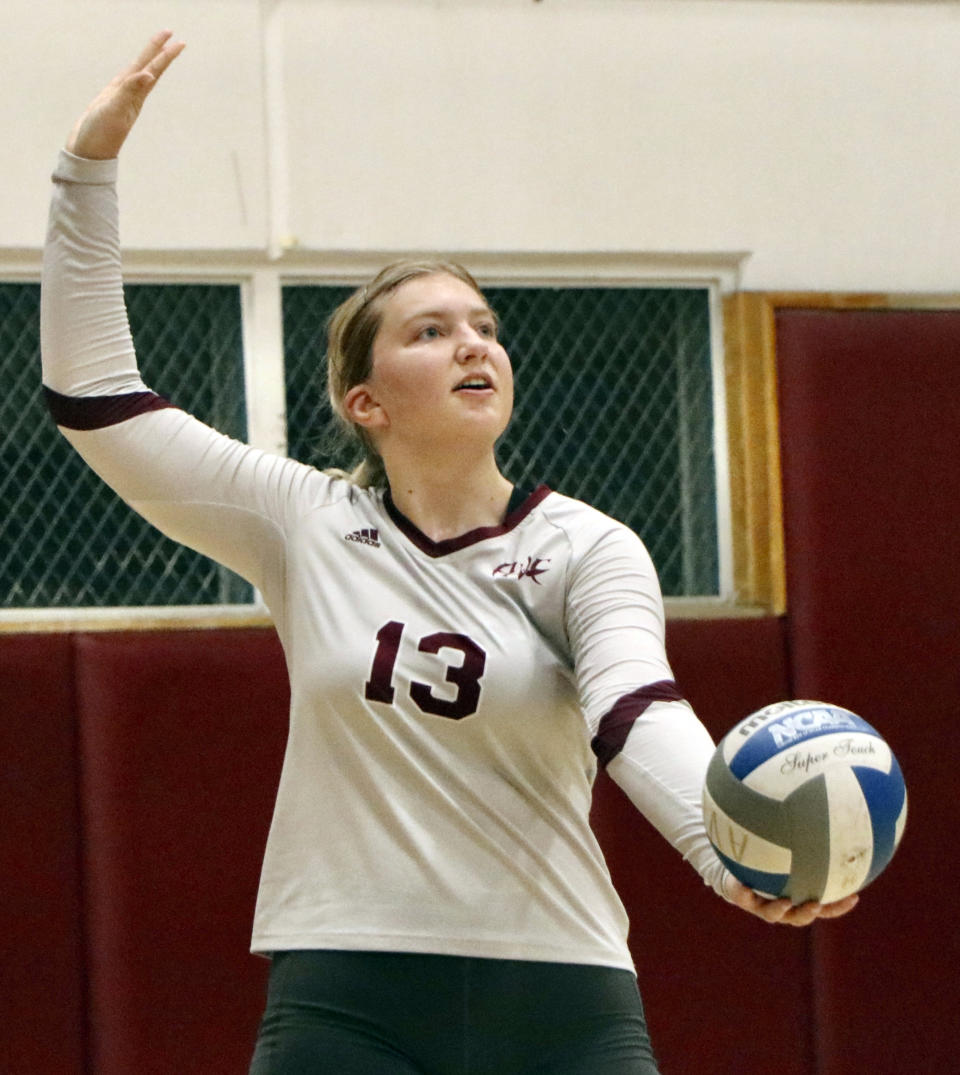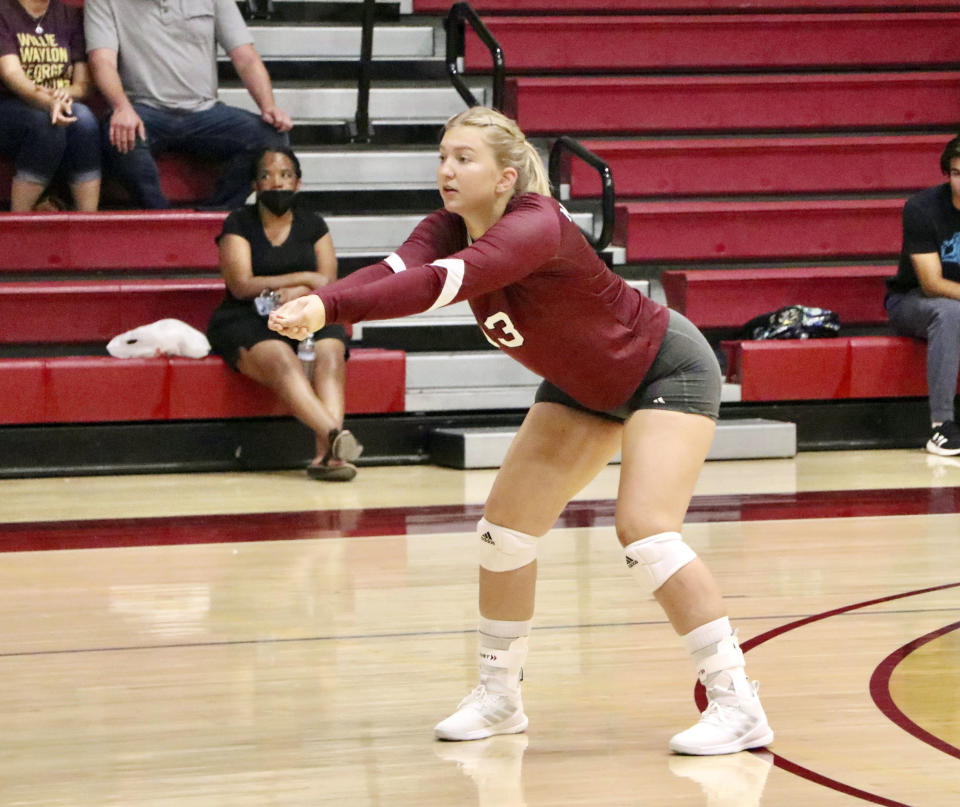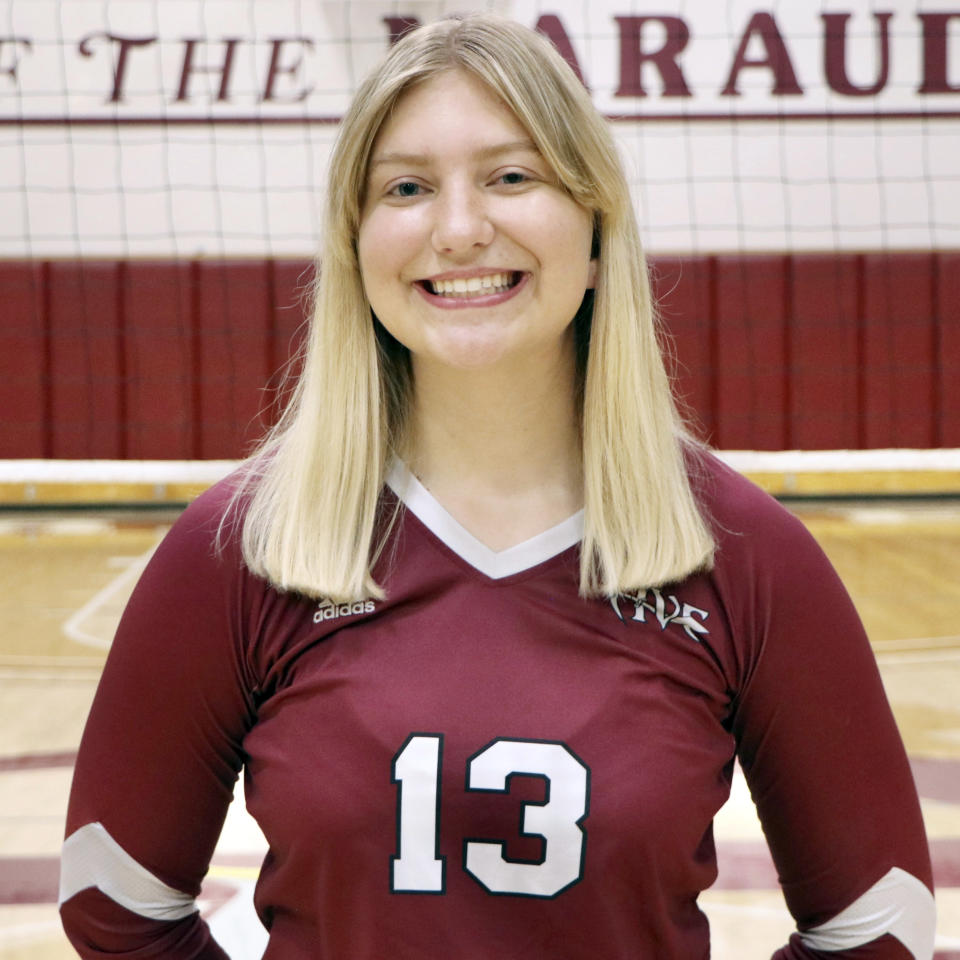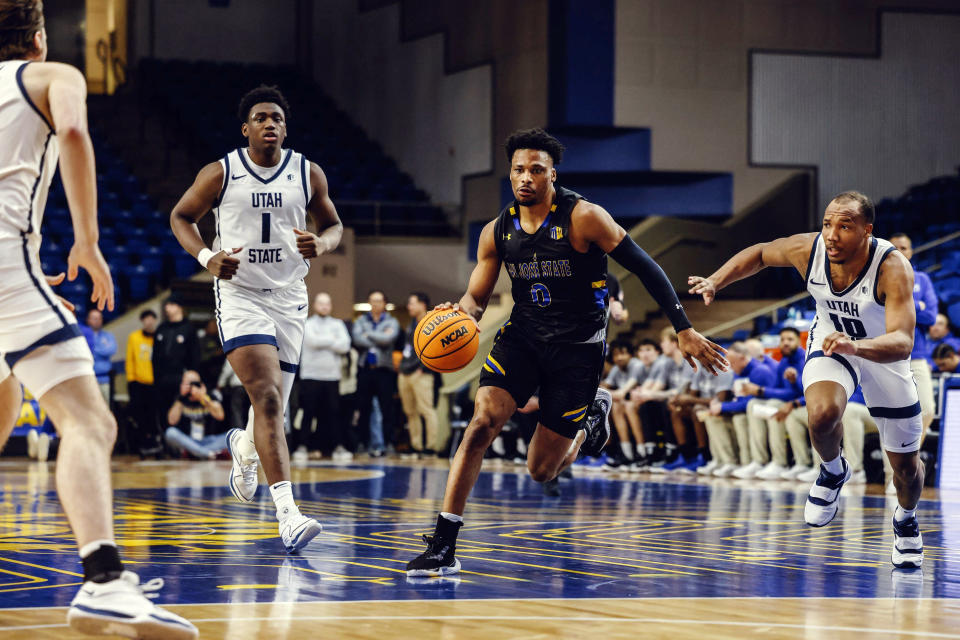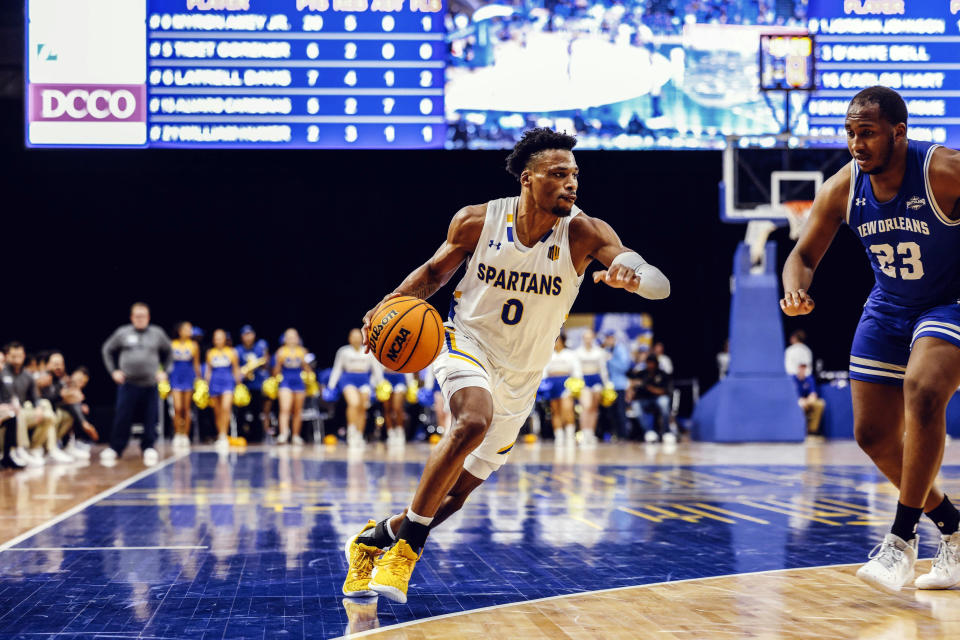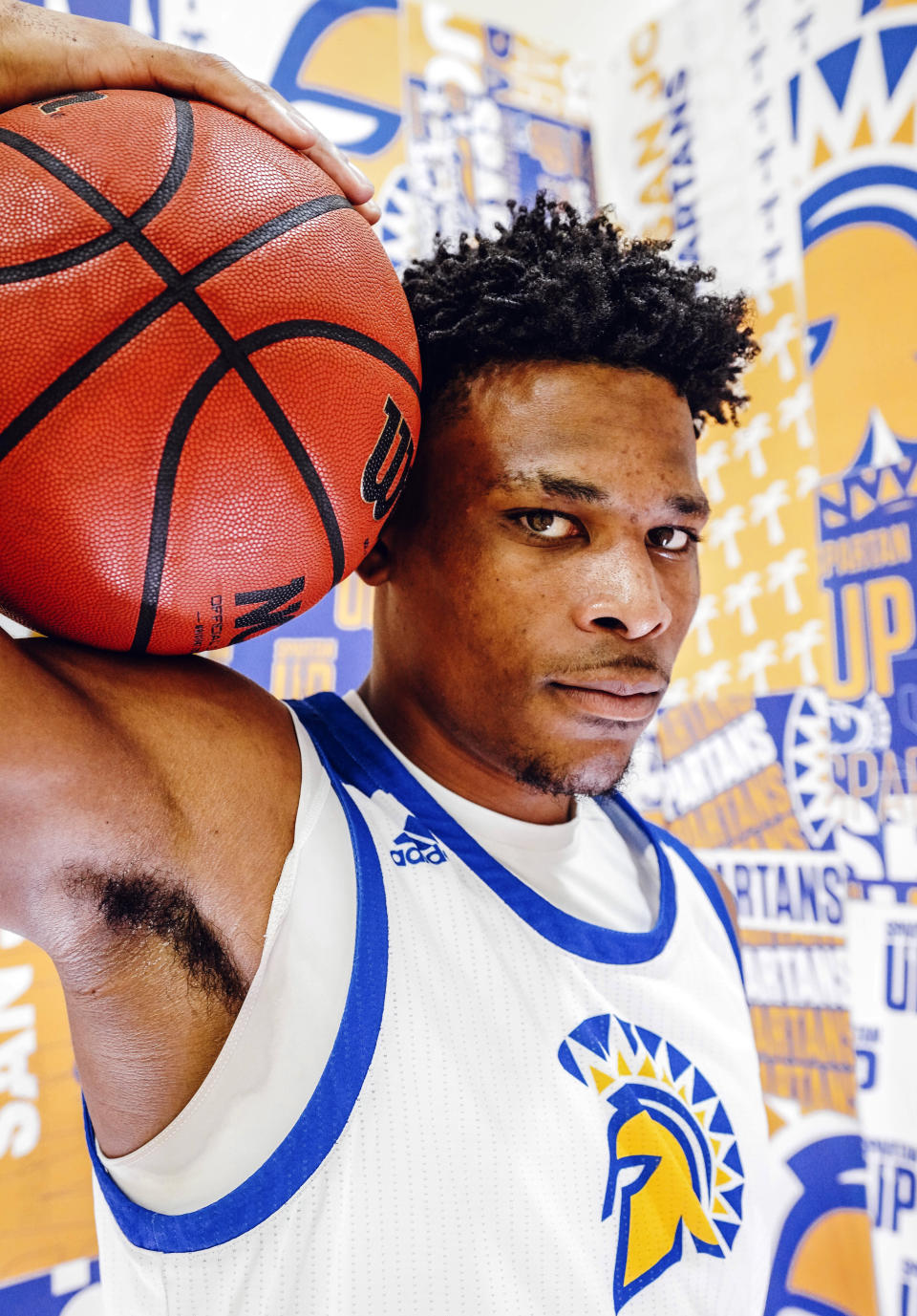CalHOPE Courage Award winners Nelsen, Amey overcome mental health struggles to shine in their sports
Cameron Nelsen never asked for help, she just didn't yet have it in her, unable to fully grasp the dangerous path her life had taken in the midst of an eating disorder and mental-health crisis stemming from a series of physical challenges that began at a young age.
Her parents sensed something was wrong and found help for their daughter, who is now thriving as a college volleyball player at Antelope Valley College all these years later.
Nelsen’s improbable path to playing college volleyball began with her first major hurdle at age 6 when she was diagnosed with Stage 2 chronic kidney disease. She later dealt with anemia during middle school that included time in the intensive care unit for emergency blood transfusions as an eighth-grader. With all that came overwhelming anxiety and depression — even self-harm — from the stress of her health crisis.
Finishing up her freshman year of college, Nelsen might never have expected she’d be playing anything but soccer at this stage.
“The choice I did make was to accept the help being provided to me. I was very scared, no terrified, of getting help for my eating disorder, but decided to accept it and choose recovery,” Nelsen told the AP. “I was able to do this with the help of an amazing treatment team, support system of friends and family, and a little bit of hope that I found within myself. That bit of hope was my love for volleyball.”
Nelsen, along with basketball player Myron Amey Jr., who is transferring to Loyola Marymount from San Jose State, are winners of the final CalHOPE Courage Award for this school year.
The CalHOPE Courage Award is presented by the College Sports Communicators, in association with The Associated Press; CalHOPE, the Department of Health Care Services’ crisis counseling and support resource; and the Governor’s Council on Physical Fitness and Mental Well-Being.
Nelsen and Amey are scheduled to be honored Wednesday in front of the Governor’s Council, which sponsors this awards program for student-athletes who have overcome personal challenges to shine in their athletic endeavors. The recipients also are scheduled to be recognized afterward before the public on the front steps of the state capitol in Sacramento.
Both Amey and Nelsen will have $2,500 donated in their name in support of mental health services at their respective colleges.
During the COVID-19 pandemic, Nelsen endured a year of hospitalizations for her anorexia nervosa and because of the restrictions she spent much of that time isolated.
When she finally began returning to regular activities, Nelsen tried to keep playing both soccer and volleyball for a couple of years but the schedule of practices and games with the pressures of academics was too much.
“So I became a one-sport athlete and focused on volleyball. I was able to find a love and passion in volleyball that I hadn’t previously experienced anywhere else in my life,” she said.
A knee injury later derailed her again, so the libero and outside hitter from Quartz Hill in Southern California founded a nonprofit called “The RecoverED Project,” in support of eating disorder recovery.
Amey, who goes by “MJ,” had a tough road to finally reach his dream of playing Division I college basketball. He didn't receive a scholarship offer out of Vacaville High, so he traveled across the country to Scotland Preparatory School in Pennsylvania to try to improve his chances — all while dealing with the grief of losing his uncle, Bobby, who didn't receive a proper funeral during the pandemic.
It still didn't lead to a college offer, so Amey began delivering food to save money to attend a basketball showcase in Phoenix, where he caught the eye of San Jose State and found his landing spot at last.
“I would train and then all night I would DoorDash until I was able to make the $250 I had to make,” he said.
But Amey underwent surgery on his left ankle following his freshman year and found himself in such a dark place dealing with life's challenges that he attempted suicide for a second time at age 20. A stint in a behavioral health hospital wasn't a perfect fix, as Amey continued with self-harm before finally finding a therapist who helped him work through his issues by writing in a journal and focusing on accepting himself.
His 2022-23 sophomore season ended after nine games and with a medical redshirt. Amey then had surgery on the right ankle before the 6-foot-2 guard bounced back to start all 31 games for the Spartans in his “comeback season” averaging 15.7 points per game.
“My support, I always had a tremendous amount of love and that’s what always kept me going in the positive direction,” he told the AP. “I would just say more people are kind of aware of my background now, I think that’s the only thing so when something goes on they kind of refer to like is it anything from the past? I’m more mature and emotionally intelligent enough to know my feelings and able to express them to people.”
___
AP sports: https://apnews.com/hub/sports
